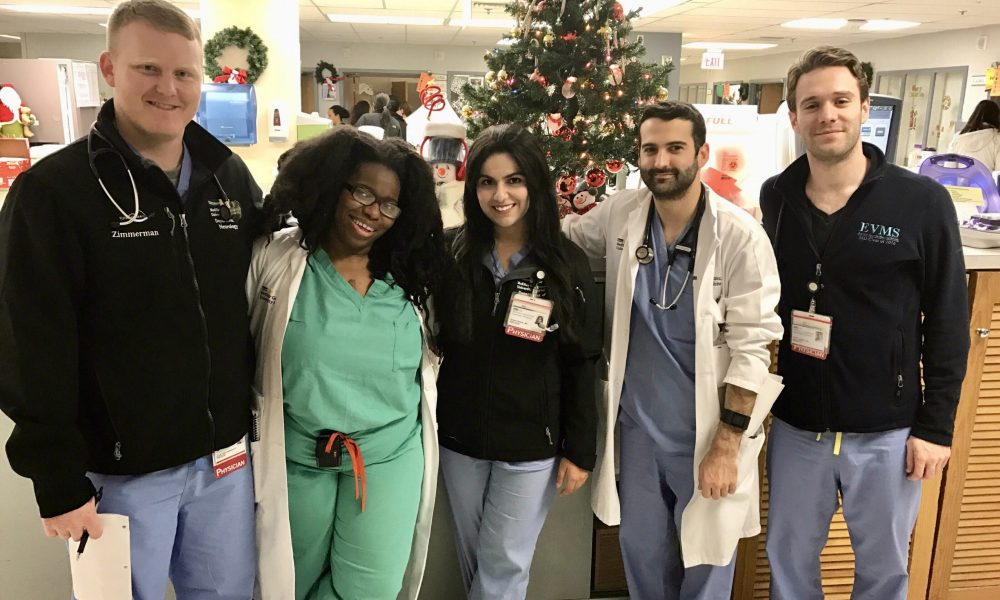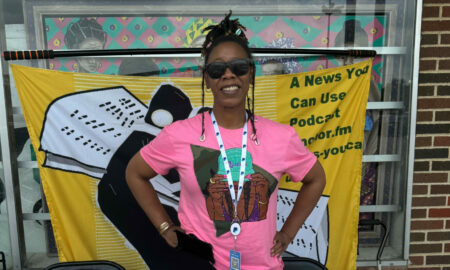

Today we’d like to introduce you to Zehra and Zainab Farzal.
So, before we jump into specific questions about the business, why don’t you give us some details about you and your story.
We grew up as little girls on a mountaintop on a different continent with big dreams for our future. Immigrating to the United States was the best thing to happen to us as our hopes and aspirations transformed into the fulfillment of the American Dream. We were born to parents who are both physicians, but one of whom stopped working when she found herself busy with the full-time job of raising twins (and then three more)! When we immigrated to the United States, our father stayed back to support us financially with his stable job abroad since five of us were about to begin college starting a few years following the move. We learned to appreciate our parents’ sacrifice to live apart from one another so that we could have the education we had always wanted, and helped co-parent our younger siblings. As a family, we did alright financially and were homeowners, but finances were usually tight given the large family. We motivated each other throughout school (built-in study buddies!), and remained roommates throughout college and medical school! Inspiration from our parents and a desire to see more women succeed in academic medicine were the biggest motivators we had. How we arrived at our particular specialties (ENT-head and neck surgery and neurology) was not straightforward either, but through keeping an open mind we both realized what we would enjoy doing most for the rest of our lives.
Has it been a smooth road?
The financial burden of achieving our career goals and the preceding education came at the expense of our family splitting across two continents, so we did not live with both our parents under the same room for almost half our lives to date. This was tough, but likely hardest on our parents, who took it with a smile and tried to see each other whenever they could even if it was a few times a year.
Medical school was difficult, but we tackled it with more joy than most of our classmates, fully appreciating what a blessing it was to have made it that far. The same is true for residency – the days are long and the payoff for the hard work is sometimes less than ideal, but we are so delighted to be at this point in our lives!
Zainab: It was difficult navigating a career in surgery, which is still a heavily male-dominated field. I was told by the surgery faculty in my medical school that I was not ‘aggressive’ enough to be a surgeon. However, I found my subspecialty when I did a rotation in Otolaryngology/Head & Neck Surgery (Oto-HNS), and I felt like I fit right in. Oto-HNS is a heavily competitive field to get into and is still 65-35 male:female, but it has been a joy to learn to operate and work with respected colleagues who are past the idea of traditional gender roles.
Zehra: Residency can be quite turbulent, especially when it involves moving to a new city and the transition from being a medical student to a resident physician with infinitely more responsibility is taxing. I’ve found that creating a support system helps tremendously and self-care is key during these times. I’ve found that neurology has become much more female-friendly over the years. I have several females attending physicians whom I consider to be my role models who are truly doing it all – juggling being a neurologist, raising children, while being active in the community/advocating for key issues for their patients.
We’d love to hear more about your work.
Zainab: I am a surgeon-scientist track resident physician in Oto-HNS at the University of North Carolina in Chapel Hill. Oto-HNS includes adult and pediatric surgery of the head and neck including cancers, ear surgery, sinus, and nasal surgery, and plastic surgery. It is one of the few specialties that rewards you with the ability to give a patient one of their senses back (like hearing!). I realized early in my medical education that medicine and research go hand in hand, and chose UNC for its department’s spectacular reputation for both. I’m currently on my second of two dedicated years of research funded by the National Institutes of Health to conduct research on optimizing treatment options for sinusitis. My other research interests include analyzing patterns of sex bias in research and improving patients’ quality of life across different Oto-HNS conditions. I am working on my Master of Public Health degree at the same time so that I can better contribute to improving the current status of healthcare in the United States.
Zehra: I am a neurology resident physician, soon to be Chief Resident at Medstar Georgetown – NIH Neurology at Georgetown University Hospital in Washington, D.C., where we see a very high volume of neurologically complex cases, along with the more common ones. I am currently applying for a fellowship to subspecialize in Movement Disorders, which I have found to be fascinating. This includes diseases like Parkinson’s, various tremors, and dystonias to name a few. I find it to be incredibly rewarding; for instance, when a patient with severe, debilitating hand tremors is implanted with a DBS (deep brain stimulation) device and when the device is programmed appropriately, patients can frequently have almost total resolution of the tremor, drastically improving their quality of life. Upon completion of my training, I hope to be part of an academic institution as teaching has been a passion of mine and I have enjoyed being able to work with medical students during residency. Advocacy is also very important to me and is uniquely situated in D.C., I have truly enjoyed being able to participate in activities/events that are important to me, ranging from human rights to science.
We’re interested to hear your thoughts on female leadership – in particular, what do you feel are the biggest barriers or obstacles?
There are MANY disparities we still have to overcome in medicine. Although we have increased initiatives for gender equity in medicine and more women are choosing to be physicians, women continue to be significantly underrepresented in the “C-Suite” type roles including department or division chairs, hospital/healthcare system leaders, and full professors. Much of this relates to a lack of acknowledgment of the fact that the leadership ladder often does not look the same for men and women. For instance, incredibly accomplished women seeking out academic tenure at an academic medical institution may have lower research productivity in their early-mid career stage than their male counterparts due to the additional role and time constraints associated with childbearing. While the inclusion of maternity (and paternity!) leave are important, institutions need to take additional steps and consider our additional roles and commitments when discussing promotions. Along the same lines, adequate support should be available for working mothers including but not limited to childcare.
Contact Info:
- Email: zfarzal1@gmail.com; zehrafarzal@gmail.com
- Instagram: TwinningInMedicine
- Twitter: ZainabFarzal; ZFarzal

Getting in touch: VoyageDallas is built on recommendations from the community; it’s how we uncover hidden gems, so if you know someone who deserves recognition please let us know here.

















